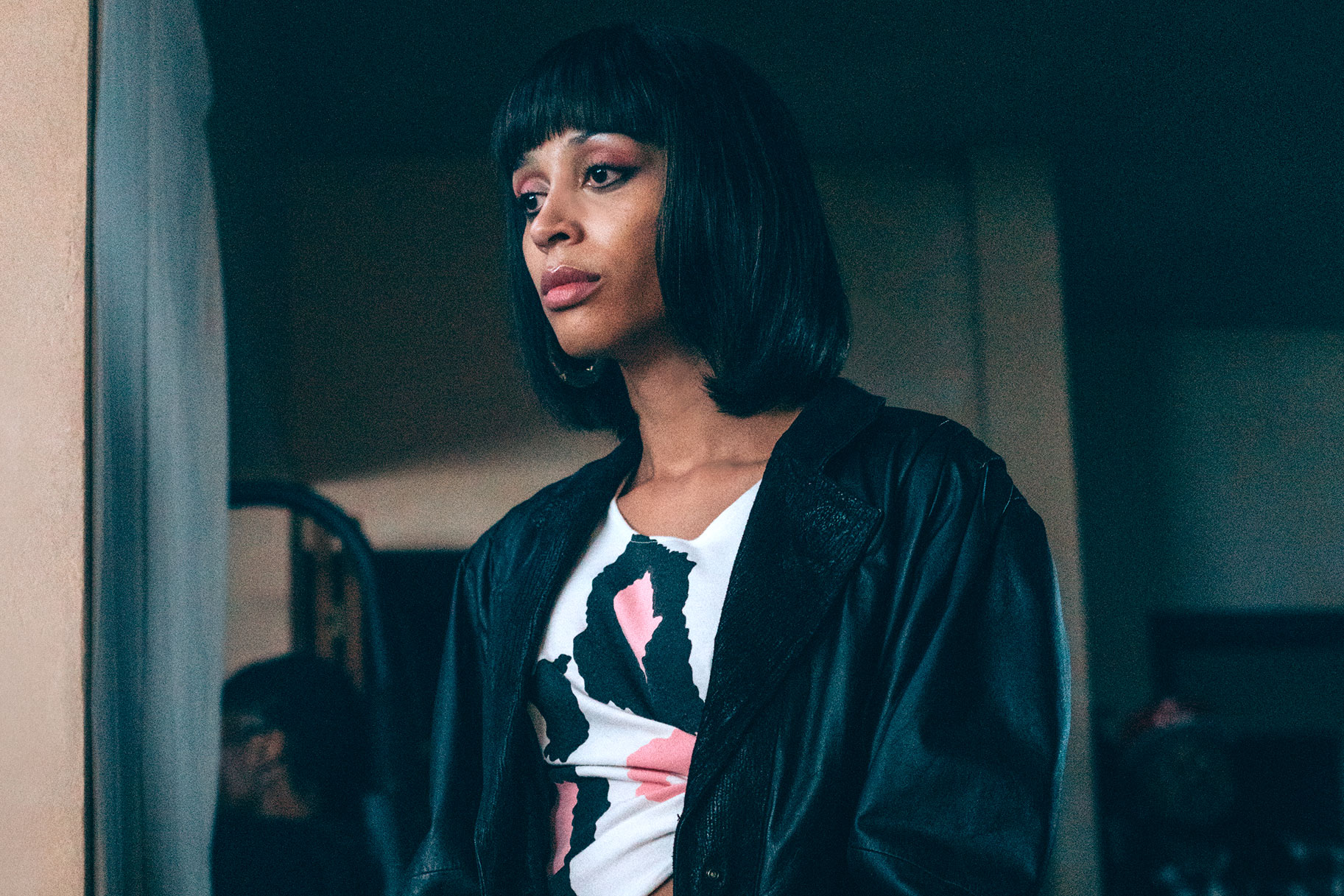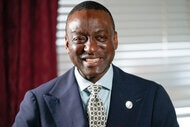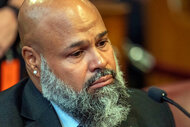Create a free profile to get unlimited access to exclusive videos, breaking news, sweepstakes, and more!
Actress Isis King Discusses The True Story Behind Marci Wise From 'When They See Us'
Model and actress Isis King discusses what she learned about the life and death of Marci Wise while playing her in the new Ava DuVernay Netflix series, "When They See Us."

The national conversations started by the Central Park jogger case of 1989 dealt with race, policing, and criminal justice. The assault and rape of Trisha Meili in April of that year — and the subsequent wrongful conviction of five teenagers for the crime — sparked massive controversy as the country debated the events of that night.
Now, as Ava DuVernay's exploration of the Central Park Five story hits Netflix, critical elements of the situation are being revisited. One side plot in the new series, titled "When They See Us," explores the death of Marci Wise, the transgender sister of Korey Wise, who was murdered while her brother served time for a crime he didn't commit.
Marci is depicted in the series as a mentor to Korey. She faces considerable harassment throughout her stint on the show and is kicked out of the house by her mother because of her gender identity. Korey later learns she was killed while he was in prison.
But how true is the show's depiction of Marci's life and death?
Marci Wise was, indeed, an actual person and not fabricated for DuVernay's retelling of the story. A spokesperson for Netflix confirmed to Oxygen.com Duvarnay spoke extensively with the family of Korey Wise when she wrote this character, basing her personality and story off Marci's real life.
Isis King, who plays Marci in "When They See Us," told Oxygen.com she saw many similarities between her own life and that of Marci's.
"I wasn't thrown out of my house [like Marci was], but of course I had a lot of issues getting my family to understand who I was. I moved out and moved to New York. During that time I lived in a shelter, where I met trans women who — literally, identically — went through what Marci went through. So while I didn't know Marci personally, I've already met many, many Marcis — which is unfortunate."
In terms of how, exactly, Marci was killed not much information exists.
"I know she was murdered," King said. "I don't want to speculate. But a lot of trans women of color, especially when you're kicked out of the house — a lot of trans women have trouble getting hired and have to resort to sex work. When you don't have a family, a survival instinct kicks in. It puts you in a position where you're in more dangerous situations. I don't for sure know that's the reason or if that's what happened to Marci. But, unfortunately, that's the reality for a lot of trans women."
Gathering data on the deaths of trans women is often immensely difficult due to police misreporting the names and genders of transgender victims, according to The New York Times. This could be why information on Marci, who also went by another post-transition name before she was killed, is so difficult to find.
"Marci used a different name for a while, so I remember when we were filming Ava told me, 'OK, we're changing her name to Marci. That was the last name she had and the name she preferred to go by,'" King explained.
But King was still able to learn one important aspect about Marci's story.
"The other thing I really know [about her life] was that she was loved in the community," King continued. "Seeing that her mother came around, of course that touched my heart. When she was talking to Korey she mentioned Marci instead of Norman. That really pulled on my heart strings. I remember at a time when I first transitioned, my mom said she would never call me Isis. But it really didn't take my mom that long to come around either. People assume that us asking to be called by our names is not that big of a deal, but it's a huge acknowledgement. It can really help build courage and confidence at a ground level, it allows you to be strong and go out into the world."
In a moment of serendipity, after playing Marci, King realized she had previously met Marci's other sibling while living in shelters in Manhattan.
"Her younger sister reached out to me the other day," King said. "She's also trans. We actually knew each other back when I first moved to New York, when I lived in a shelter. There is a place called The Door where — during the day time, when we couldn't be in the shelter — a lot of us would go. I was 21 at the time but I said I was 20 to get the resources. We would have little kiki balls. I remember her sister from before she transitioned. She thanked me for honoring her sister in a positive way. I had no idea that I knew someone who was related to Marci."
For King, the role presented several challenges but provided an important opportunity to shine a light on ongoing problems within black communities. Her priority throughout was honoring Marci's memory.
"Unfortunately, stories like hers are way too common. Right at the time I was auditioning, yet another trans woman was killed. As this project comes out, another woman was killed," King said, referring to the death of Muhlaysia Booker. "The community let her down. Law enforcement let her down. There's no reason she shouldn't have been more protected ... It's hard when you live in a world that doesn't think you belong. And you just want to succeed, you want to survive. I think a lot of it goes back to being told what's masculine or not — a lot of families need to allow men to be expressive and to not hold that against them. Because a lot of the time, they're taking it out on trans women. We shouldn't have to pay for someone else's insecurities."
Indeed, trans women — especially trans women of color — face disproportionate levels of violence compared to other demographics. The Human Rights Campaign, an LGBTQ advocacy group, says in a press release "that the intersections of racism, sexism, homophobia, biphobia and transphobia conspire to deprive them of employment, housing, healthcare and other necessities, barriers that make them vulnerable."
In 2018, at least 27 known transgender people were murdered. In 2019, at least seven have already been shot or killed by other violent means.
"People need to see what's going on in the community," King concluded. "You need to see what's going on in your own household. I really hope that this does open eyes in the community."
























